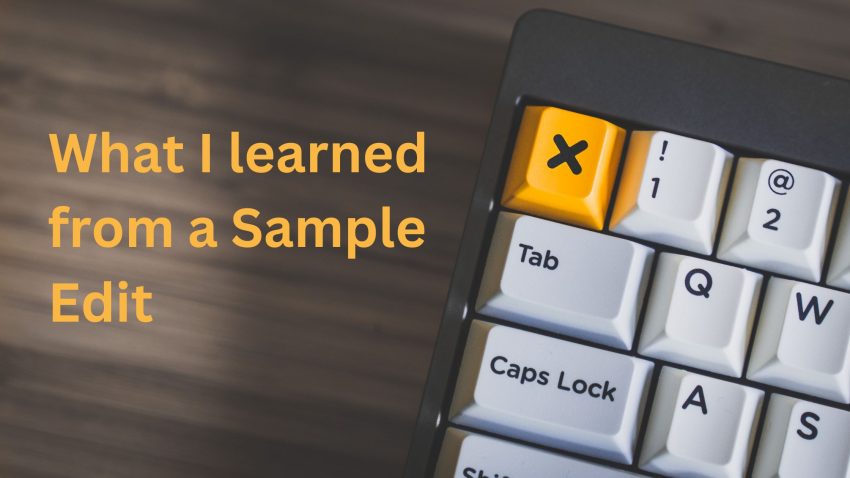What happens when you’ve completed your first draft and don’t know what to do next? Last year, I completed the first draft of a dystopian novel. Since then, I’ve felt stuck. I’ve been paralyzed by fear and self-doubt. I know it needs work, but I was unmotivated to go back in to shine this rough and ragged story into something worthy of being read. I needed help. Luckily, I knew where to find it.
I knew I’d eventually need a professional edit. So, I reached out to one of the many connections I’d made through social media. I’d been following this editor for quite some time and appreciated the content they provided on their page. Their posts were a good mix of motivation, tips, recommendations, and education. They only used a hint of self-promotion, without being overbearing. On their page, this editor offered a free sample edit of five thousand words. I figured this was a good way to dip my toes into the type of professional feedback I was going to need to create my best possible work.
Despite the terror I felt in sharing my draft, I reached out and sent off the first bit of my novel in progress. It was the best thing I could have done.
Coping with the idea of criticism
Putting my work out for critique was terrifying. No matter how many revisions we know it may need, we all just want to hear that our work is valued and our ideas are genius. And while the editor didn’t tell me I’m the next Margaret Atwood, they had plenty of encouragement and praise.
Of course, praise won’t do much other than boost my ego. Besides telling me what was working in my draft, they had plenty of constructive feedback on where I could improve my story. I received detailed information on my story’s strengths, areas for growth, and additional considerations. Via Google Docs, this editor was able to easily make line edits as well, right in my pages. I also received a style sheet detailing areas of attention needed.
All of a sudden, the draft of my novel I had been dragging my feet on, lost on how to continue to make improvements, was front and center again in my brain. With clear suggestions, I dove back in to make the edits suggested. A wonderful thing happened next. Taking that first step released a floodgate of motivation.
I took what I learned and continued to apply that advice to the rest of my story. Getting professional eyes on my work helped release the mental block I had built out of indecision and anxiety. I had a plan. And now, I had a partner as well. Once I finish rewriting with these edits in mind, I plan on getting beta reader feedback, incorporating those suggestions, and then returning to this editor for a full developmental and line edit.
If you decide you would like to explore a sample edit, here are the things to consider:
- Work with someone you have at least some connection professionally.
- What kind of editor are they? Will they provide the right type of feedback?
- Do they have appropriate credentials?
- How long have they been providing these services?
- How helpful is their feedback?
- Do they highlight both areas of need and areas of strength?
- Do they provide their response in a reasonable amount of time?
- Are their suggestions easy to understand and presented in a clear and organized manner?
These questions should help you vet editors before the sample. Even free help isn’t always worth it! After all, we all have enough mental clutter and indecision. Give yourself the best possible chance of getting feedback you can trust. After the sample edit comes back, ask these questions again before you pay money to edit the full manuscript.
There comes a time in every author’s life when they need feedback. No one person can be an expert at everything, even the individual facets of writing. Starting with a sample edit is a smart way to both improve your current draft as well as interview an editor before committing to a complete, paid edit. I know I don’t regret it!
Have you ever done a sample edit? What did you learn? Share in the comments! We love to learn from you, too!
About the Writer: Jill Robinson is a wife, mother of two, athlete, speech-language pathologist, and lover of all animals. She loves the outdoors and singing off-key in the car. Writing brings her peace. You can follow Jill on her author blog, Instagram, and Twitter.
